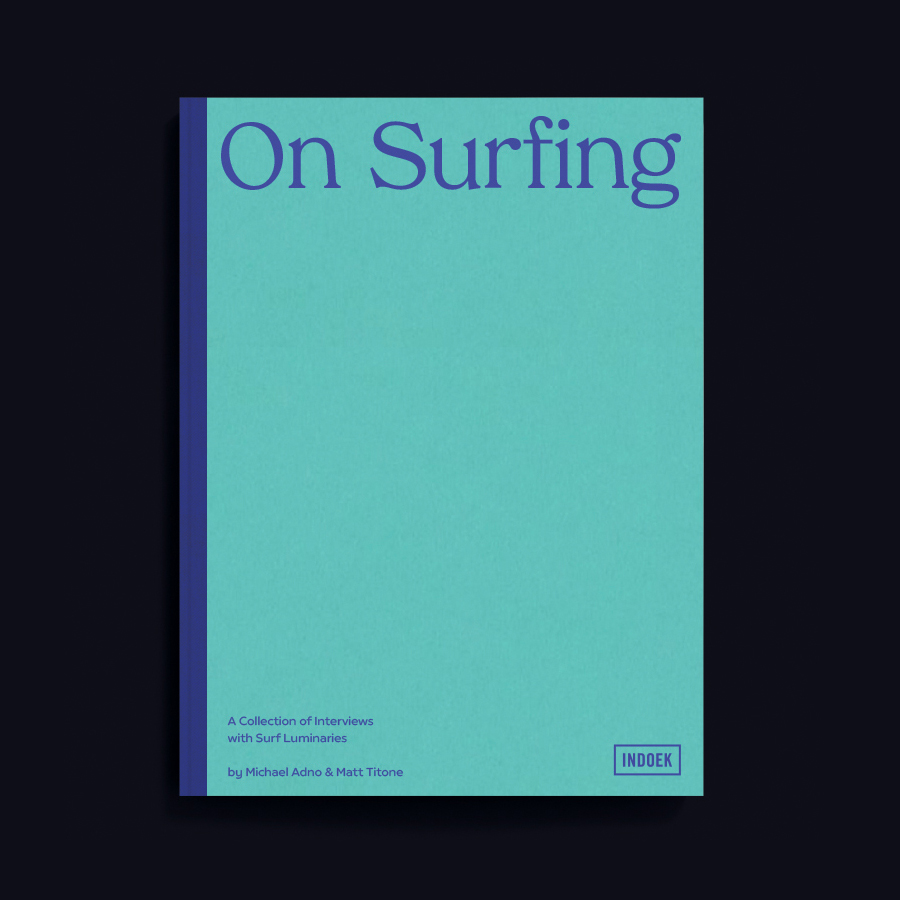You started off your career as a pro surfer throughout your youth, then transitioned into becoming a professional writer. Obviously you and Westerly are two different people, but were the two of you able to find a connection because of being faced with the mutual transition from pro surfing icon into something else? Was that something that intrigued you about her in the first place or am I going way out on a limb with that one?
That’s a really great question. I didn’t really realize this, but I kind of back-doored my way into writing. I was a pro surfer, I was on the tour for 5 years and one of the things that happens when you’re a pro surfer is you have an inflated self importance. It’s in an athlete’s best interest to have a giant ego quite frankly, because you need that to compete. So, when I was going around the world as a pro surfer, the voice in my head was kind of like – we’ve seen the movie Rocky or Muhammed Ali documentaries or what have you, it’s kind of like telling yourself, “I’m the baddest.” And so you do that and then when your career ends and you’re thrown back to the world, it’s hard to shake that off. On the other side, pro surfing is so amazingly great – to take something that you come to at like age 10 or 12 or whatever and do it and turn it into a profession – you know, it’s such a pure form of expression.
So when I came out of pro surfing, I wanted to do something that was expressive or creative. I read a lot, I kept journals on the tour, so I started writing. I kind of back-doored my way into writing for surf magazines. I was published probably sooner than I should have – or sooner than another person would have been because I had first hand experience as a surfer. I had a long ways to go in terms of what it means to be a writer though. Just simply, there was a lot I needed to read. There were also tens of thousands of words I needed to write to get to a better place. So I wrote about surfing because it’s something I know. I didn’t really realize this as I was going along, but I realized that in many ways, my theme or the thing that I was trying to understand among all these profiles I would write or in the travels I was doing is, “What do you do if surfing is you’re first love in life? What does a surfer do later in life.” If you look at most surf magazines (or certainly the advertising in surfing) it’s all focused on youth, it’s all about high performance. It’s great, but after the age of 30 (with the exception of people like Kelly Slater, or people like that), real life comes in, or responsibility comes in and you have to do other things, so you’re not surfing as often. And how does surfing fit into that. For someone who came to surfing and loved it and it’s such big part of me, when I’d be writing profiles of older surfers I wasn’t asking this direct question, but this was my query which was like, “how do you live an interesting life if surfing is a the center of your life and you’re now 50 years old?”
So in many ways when I first came to Westerly and Peter Drouyn, that was the question that was there as something I wanted to know, but at the same time, in writing about surfing for so long, there were so many similar stories. There weren’t a lot of terribly interesting people. There was almost like a prescribed life recipe for surfers. Or another way to put that is that surfers are all praying to the same god. They’re all just stoked to have good waves. I also found that the surfing world that I came to in the late 70s, early 80s was very open and there were a lot of eccentric characters, and it seems to now have become more and more homogenized. When I came to Westerly and realized this person kind of pokes a hole in all of surfing’s taboos or expectations, I was so behind it and I was really happy to get behind someone who was going to challenge a lot of narrow minded people quite frankly. So that was one of the things that really got me interested is, “Hey I love it, you’re so eccentric you’re so wild, you have such an amazing mind and I’m sharing it with a community that’s not used to this at all and they want to cast you off as lunatic, but I actually believe in you. I think you’re fantastic and I think it’s good for people to see you in the depth of humanity that you represent.”
Does Westerly still surf?
A lot, and she surfs really good. Fantastic style and more feminine than Peter was. Peter was a very masculine surfer, very powerful and grunting, and kind of heaving the board up and down. Westerly is more dainty, flowing and graceful, more balletic, more feminine.







